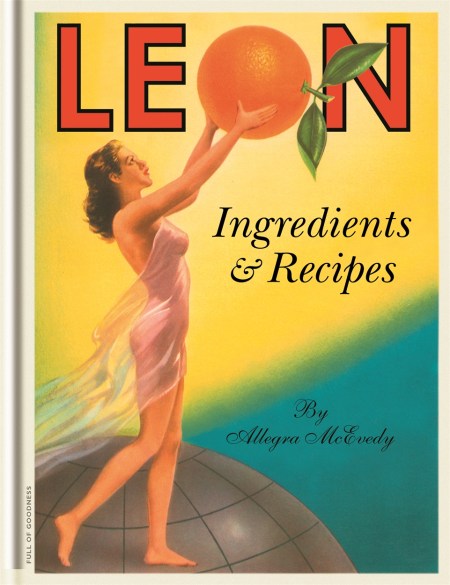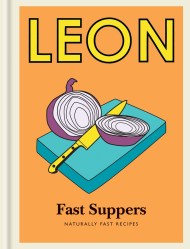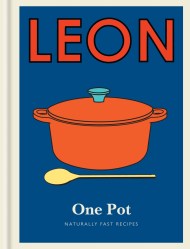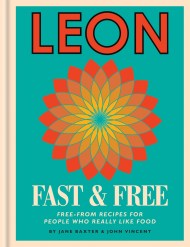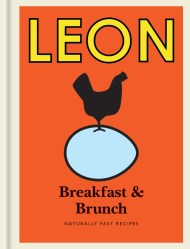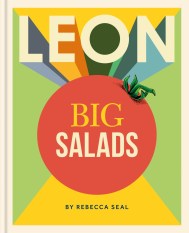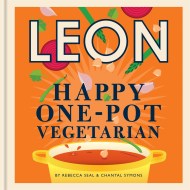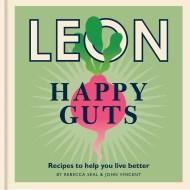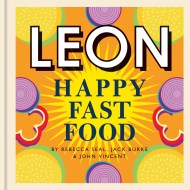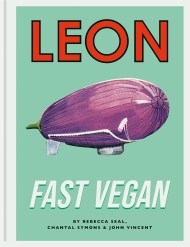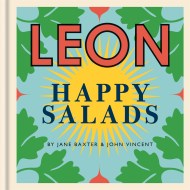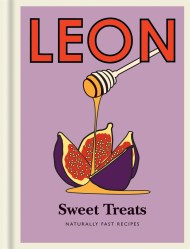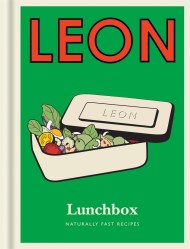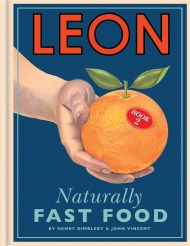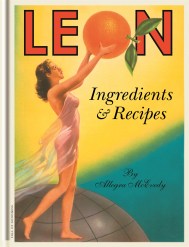Leon: Ingredients & Recipes
‘Leon serves food that is fresh, seasonal, locally sources and really good. The twist is that your food is served really fast. The double twist is how delicious it is.’ – Vogue
The first Leon restaurant, in London’s Carnaby Street, opened its doors in July 2004. For its founders – Henry Dimbleby, John Vincent and Allegra McEvedy – the aim was to change the face of fast food, by bringing fresh, wholesome cooking to the high street. Six months later, Leon was named the Best New Restaurant in Great Britain at the Observer Food Monthly Awards. The menu is based around bold flavours, using simply-cooked fresh, local, natural ingredients with an emphasis on seasonal dishes; it also reflects how our eating habits change as the daylight house get longer and shorter.
This is a book of two halves. The Ingredients Book arms you with everything you need to know about the basic building blocks of any recipe. LEON chooses its ingredients above all for their flavour and healthiness but also with a view to the world we live in, so that such shark-infested waters as sustainable fish are tackled and easy to navigate. LEON’s top 250 fruits, vegetables, fish, meats, dairy and store cupboard ingredients are all given their own entries. Nutrition, a bit of history, flavour and the best way to get the most out of them are all covered, seasoned with a fair amount of random miscellany.
The second half is The Recipe Book, where you can put your newly found knowledge of ingredients to great use with over 140 recipes: some are familiar favourites taken from LEON’s menus such as the Original Superfood Salad, Moroccan Meatballs or Magic Mackerel Couscous and, for LEON Lovers everywhere, at last a recipe for the coveted LEON Better Brownie. Plus there are some recipes from the founders, their friends and those who helped make LEON what it is today, like Fred’s Millennium Octopus and David Dimbleby’s Spanish Omelette.
LEON’s food message is a simple and honest one – cook and eat with the best ingredients available and don’t forget the naughty bits that are so necessary for a fully-rounded life.
The first Leon restaurant, in London’s Carnaby Street, opened its doors in July 2004. For its founders – Henry Dimbleby, John Vincent and Allegra McEvedy – the aim was to change the face of fast food, by bringing fresh, wholesome cooking to the high street. Six months later, Leon was named the Best New Restaurant in Great Britain at the Observer Food Monthly Awards. The menu is based around bold flavours, using simply-cooked fresh, local, natural ingredients with an emphasis on seasonal dishes; it also reflects how our eating habits change as the daylight house get longer and shorter.
This is a book of two halves. The Ingredients Book arms you with everything you need to know about the basic building blocks of any recipe. LEON chooses its ingredients above all for their flavour and healthiness but also with a view to the world we live in, so that such shark-infested waters as sustainable fish are tackled and easy to navigate. LEON’s top 250 fruits, vegetables, fish, meats, dairy and store cupboard ingredients are all given their own entries. Nutrition, a bit of history, flavour and the best way to get the most out of them are all covered, seasoned with a fair amount of random miscellany.
The second half is The Recipe Book, where you can put your newly found knowledge of ingredients to great use with over 140 recipes: some are familiar favourites taken from LEON’s menus such as the Original Superfood Salad, Moroccan Meatballs or Magic Mackerel Couscous and, for LEON Lovers everywhere, at last a recipe for the coveted LEON Better Brownie. Plus there are some recipes from the founders, their friends and those who helped make LEON what it is today, like Fred’s Millennium Octopus and David Dimbleby’s Spanish Omelette.
LEON’s food message is a simple and honest one – cook and eat with the best ingredients available and don’t forget the naughty bits that are so necessary for a fully-rounded life.
Newsletter Signup
By clicking ‘Sign Up,’ I acknowledge that I have read and agree to Hachette Book Group’s Privacy Policy and Terms of Use

